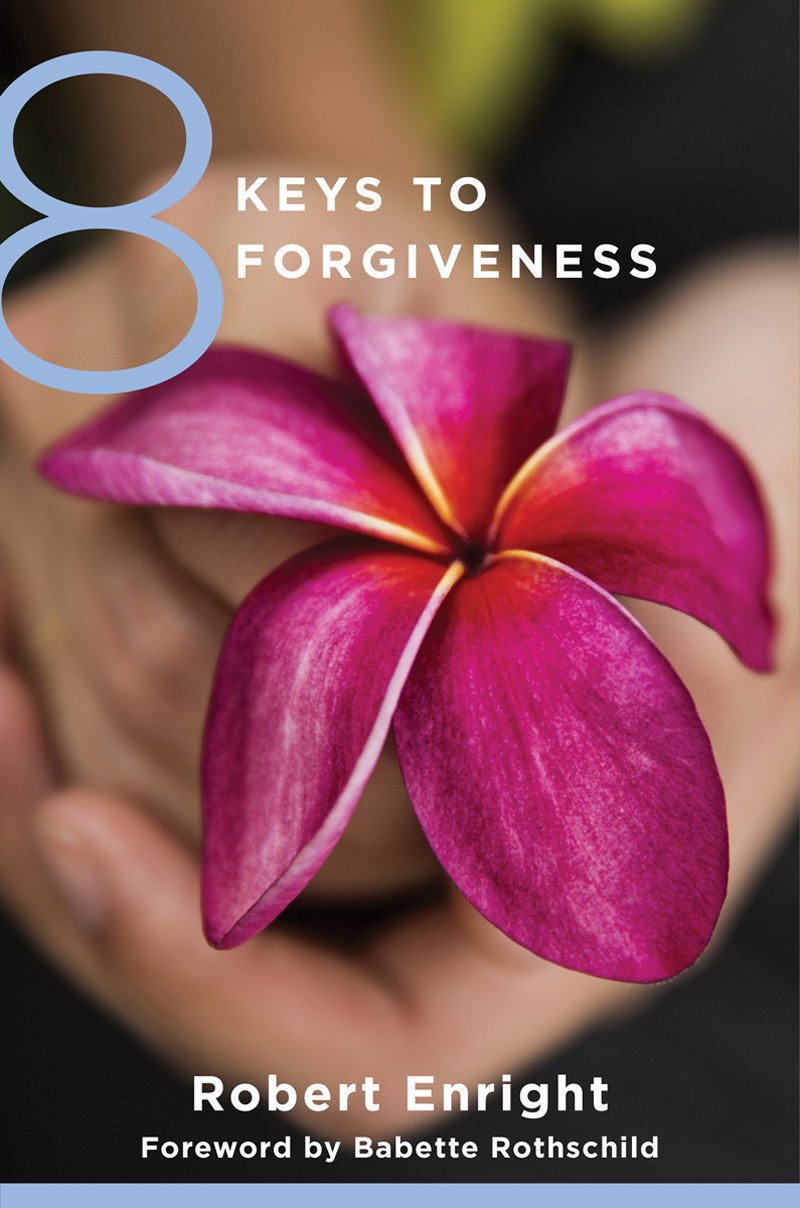Archive for November, 2022
How might people distort the process of forgiveness?
For decades, our group has been monitoring and trying to correct false definitions of what it means to forgive those who acted unjustly. For example, in defining what forgiving is, some authors have erroneously equated forgiveness with excusing the wrong done, automatically reconciling, and abandoning a quest for justice.
I have come to realize that even the process of forgiveness (how people go about forgiving) can be prone to misinterpretations, to errors in what actually occurs when a person engages in the process of forgiving. To correct these errors, let us consider four responses to these misconceptions.
- As a person walks the path of forgiveness, there is a tendency to say, “I have not done enough; I have not reached perfect forgiveness.” This kind of thinking expects too much of the forgiveness process. As Lewis Smedes said in his book, Forgive and Forget, forgiveness is for imperfect people. We rarely reach a perfect state of forgiving. We must be careful not to disparage ourselves if we still have some work to do on the forgiveness process once we exert time and effort on it. Often in our research, when people are gravely hurt by others and are very low in forgiving, they tend to go to the middle part of our forgiveness scale, not to the higher end. Yet, this progression makes all the difference as people shed excessive anger, anxiety, and depression, and can increase in self-esteem. The message here is this: Try to be temperate. On the one hand, do not expect perfect forgiveness. On the other, do not give it a half-hearted effort, concluding that, since you are not perfect, there is no need to keep trying. Strike the balance between too little effort and too high an expectation for you as a forgiver. You will know you are making progress as your anger lessens and as you wish the offending person well (as Smedes reminded us in his book).
- Here is another worry about the forgiveness process: “My process of forgiveness may create an expectation in the other that he now deserves to be back in my life.” Your engaging in the process of forgiveness may lead to a variety of different reactions in other people. Some may now demand reconciliation. This is not your fault. It is a misunderstanding on the part of the one who acted badly. Other people’s misinterpretation of your forgiving, of your goals in doing so, is not your error. It is the other’s error and so please do not hold yourself responsible (or the process of

Learn more about the process of forgiveness in this easy-to-use, step-by-step, how-to-forgive guide.
forgiveness responsible) for the other’s misinterpretation. You may have to clarify that your forgiving does not necessarily mean that you are ready to reconcile. The forgiveness process, as goodness toward others, remains good even if others misunderstand.
- Here is another: “My process of forgiveness may be so time consuming as to imbalance my full life.” This is another issue of intemperance. We can over-do (or under-do) just about anything. Be careful not to place forgiving so high on the priority list that you spend far too little time with loved ones, or neglect your job, or fail to get adequate exercise or rest. The process of forgiveness is part of a complete life.
- And here is our fourth worry about the forgiveness process: “Even as I engage in the process of forgiveness, I may not end all anger.” This kind of fear is common. People want to be done with anger and discontent which are effects of the unjust treatment against them. Even if all anger does not subside, in all likelihood, as you practice forgiving, and then try again…..and then again…..the anger lessens. You, then, are in control of the anger rather than the anger controlling you.
The definition of forgiveness can be distorted. Understanding the process of forgiving can be distorted. Do not let these distortions deter you from the life-giving practice of forgiving.
How to Become a Better Forgiver
We all know that forgiveness is neither simple nor easy. It can be a challenging process. But new tools are being developed that can help you cut through the clutter, sharpen your “forgive-ability” skills, and become a better forgiver. One of those tools was recently released by the
Greater Good Science Center (GGSC), a California organization that sponsors groundbreaking scientific discoveries.
“Eight Essentials When Forgiving“ is a simple practice technique that provides concrete guidelines while breaking down the forgiveness process into easily manageable components. The 8-step exercise is based on the “backed-by-science” work of pioneering forgiveness researcher Dr. Robert Enright, a University of Wisconsin-Madison educational psychology professor and co-founder of the International Forgiveness Institute (IFI).
Specifically, the exercise focuses on Dr. Enright’s basic forgiveness principles in order to help you:
- narrow and understand whom to forgive;
- name and describe your pain;
- understand the difference between forgiving and excusing or reconciling;
- think about the person who has caused you pain in a novel way so you may begin to feel some compassion for them and reduce the ill will you hold toward that person.
The GGSC forgiving exercise also attunes users to residual pain from their experience and encourages them to find meaning and some positivity in it. Step-by-step instructions are included along with scientific evidence that forgiveness works. GGSC also cautions that in certain cases it may help to consult a trained clinician, especially if you are working through a significant traumatic event.
The Greater Good Science Center is part of the University of California, Berkeley. It not only studies the psychology, sociology, and neuroscience of well-being but also “teaches skills that foster a happier life and a more compassionate society–the science of a meaningful life.”
 Other practice exercises and forgiveness-related resources available on the GGSC website include:
Other practice exercises and forgiveness-related resources available on the GGSC website include:
- Introducing Kids to Forgiveness
- Nine Ways to Help Siblings Get Along Better
- 8 Keys to Forgiveness
- A Different Way to Respond When Kids Do Something Wrong
- Forgiveness Quiz: How Forgiving Are You?
If we all use psychological defenses such as denial and repression, how do we ever come to realize who hurt us when that hurt occurred many years ago when we were children?
As people see that they are carrying deep hurt at present, this can be a motivation for examining who did the hurting in their lives. One exercise that I recommend in the book, The Forgiving Life, is what I call the Forgiveness Landscape. In this exercise, people slowly start to make a list of those who have actually hurt them, starting from early childhood and progressing up to the present time. As people do this exercise, they can begin to see areas of hurt that are long forgotten (but still subconsciously can be affecting a person’s well-being at present). For example, as people reflect on their past life, they might recall being bullied at age 11. This then breaks the repression that might have been present with regard to the bullying. This breaking of the psychological defenses can occur particularly when a person knows that forgiveness is an effective response to the past injustices and to the current hurts still present from those past offenses.
Does one need humility in order to forgive well?
As we forgive, we begin to see the inherent worth in both the one who acted unjustly and in ourselves. Yes, I do think it requires humility to not feel superior toward the other person who acted badly. Humility shows us that we are not better or worse than others. To see both of you as human, both in need of respect and love, requires the moral virtue of humility. These two viruses, humility and forgiveness, constitute an important team.
Can you think of a situation in which forgiveness would definitely not be appropriate at all?
Let us first make a distinction between forgiveness itself and people who forgive. Some people will not forgive others for certain horrendous situations. This is their choice and they should not be criticized for their decision. In contrast, forgiveness itself, as a moral virtue, is always appropriate (for those who choose it) because it centers on goodness and goodness itself is always appropriate. Here is an essay on wrote on this subject at the Psychology Today website:
Is Forgiving Another Person Always Appropriate?



